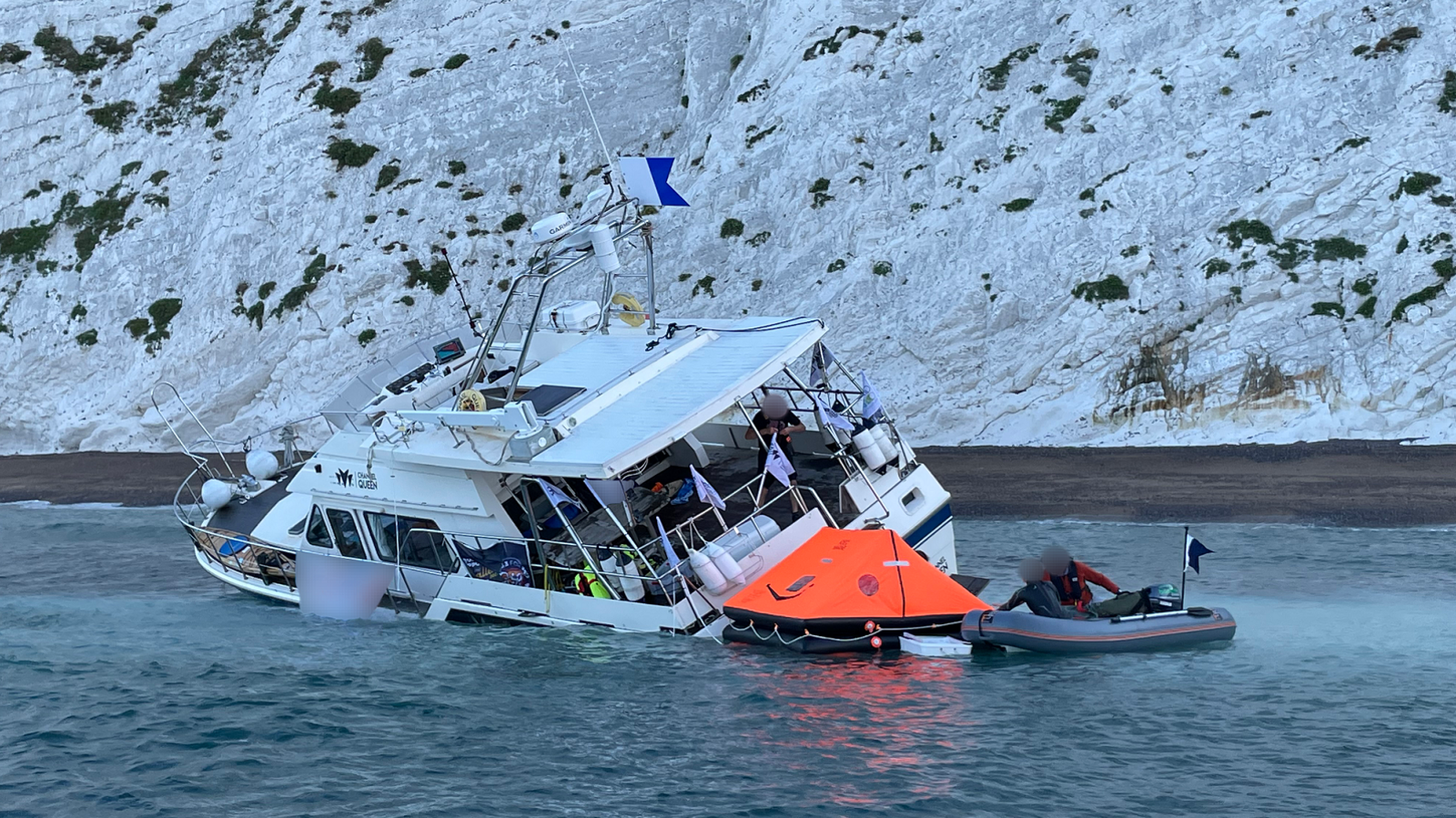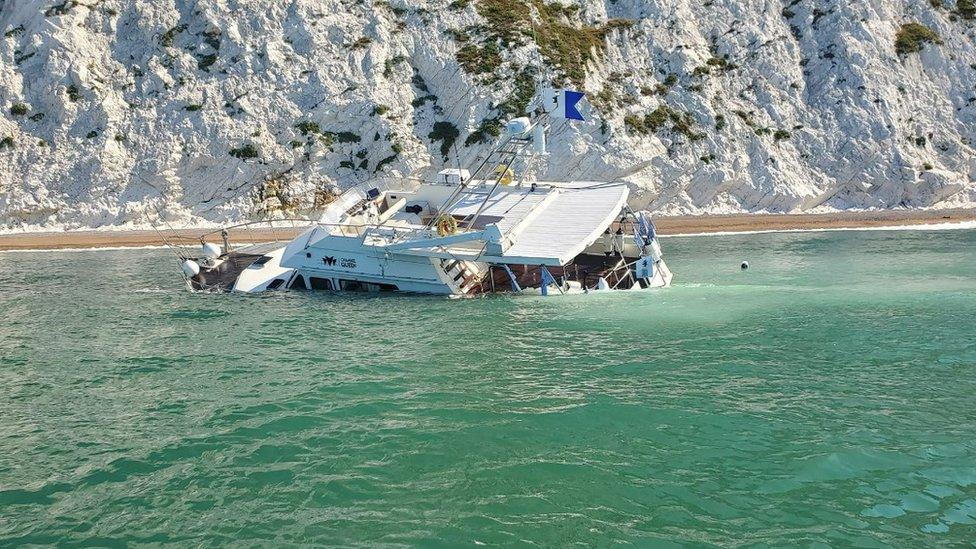Charity swimmers' support boat 'holed' near wreck

The MAIB said the boat's owner, who was navigating it, was “insufficiently qualified”
- Published
A boat being used to escort a relay swim event around the Isle of Wight grounded before its passengers and crew were rescued, investigators found.
Channel Queen hit something while passing over the wreck of steam ship Varvassi, which sank in 1947, near the Needles lighthouse at about 06:00 BST on 20 July 2023.
Fourteen people, including fundraisers who planned to lap the island for Cure Parkinson’s, were taken to Lymington Harbour by the RNLI, with some suffering minor injuries.
The investigation also found its owner, who was navigating the boat by eye when it struck Varvassi, was “insufficiently qualified” and “was dealing with a number of distractions” at the time.
The Marine Accident Investigation Branch (MAIB) found Channel Queen’s route plan “did not provide a sound basis for a safe circumnavigation of the Isle of Wight”.
Although the wreck was unmarked, it was "clearly identified on paper and electronic charts", it said.
The MAIB found the boat’s qualified skipper was travelling in a kayak to supervise a swimmer when the accident happened.
While the ship’s owner had extensive experience organising swim events, they had limited experience of navigating boats commercially, according to the report.
Channel Queen was beached on Scratchell’s Bay and struck a submerged rock as it did so. It was later declared a total loss.
The MAIB recommended that the company that ran the event, Swimon Proprietary Limited, reviews the navigation passage planning used for any boat in future.
Chief inspector of marine accidents, Andrew Moll OBE, said: "Once the hull of Channel Queen was holed it was fortunate that the boat was beached before it could sink, which gave the occupants time to disembark safely.
"In only slightly different circumstances the outcome could have been much more serious," he added.
"The four stages of passage planning: appraisal, planning, execution and monitoring, are well tried and tested. Had they been followed during this event, particularly as Channel Queen was operating very close inshore, the accident could have been avoided.”
Clarification 26 July 2024: This article was amended to provide more details from the MAIB report about what happened in the incident.
Follow BBC South on Facebook, external, X (Twitter), external, or Instagram, external. Send your story ideas to south.newsonline@bbc.co.uk, external or via WhatsApp on 0808 100 2240, external.
Related topics
- Published20 July 2023
